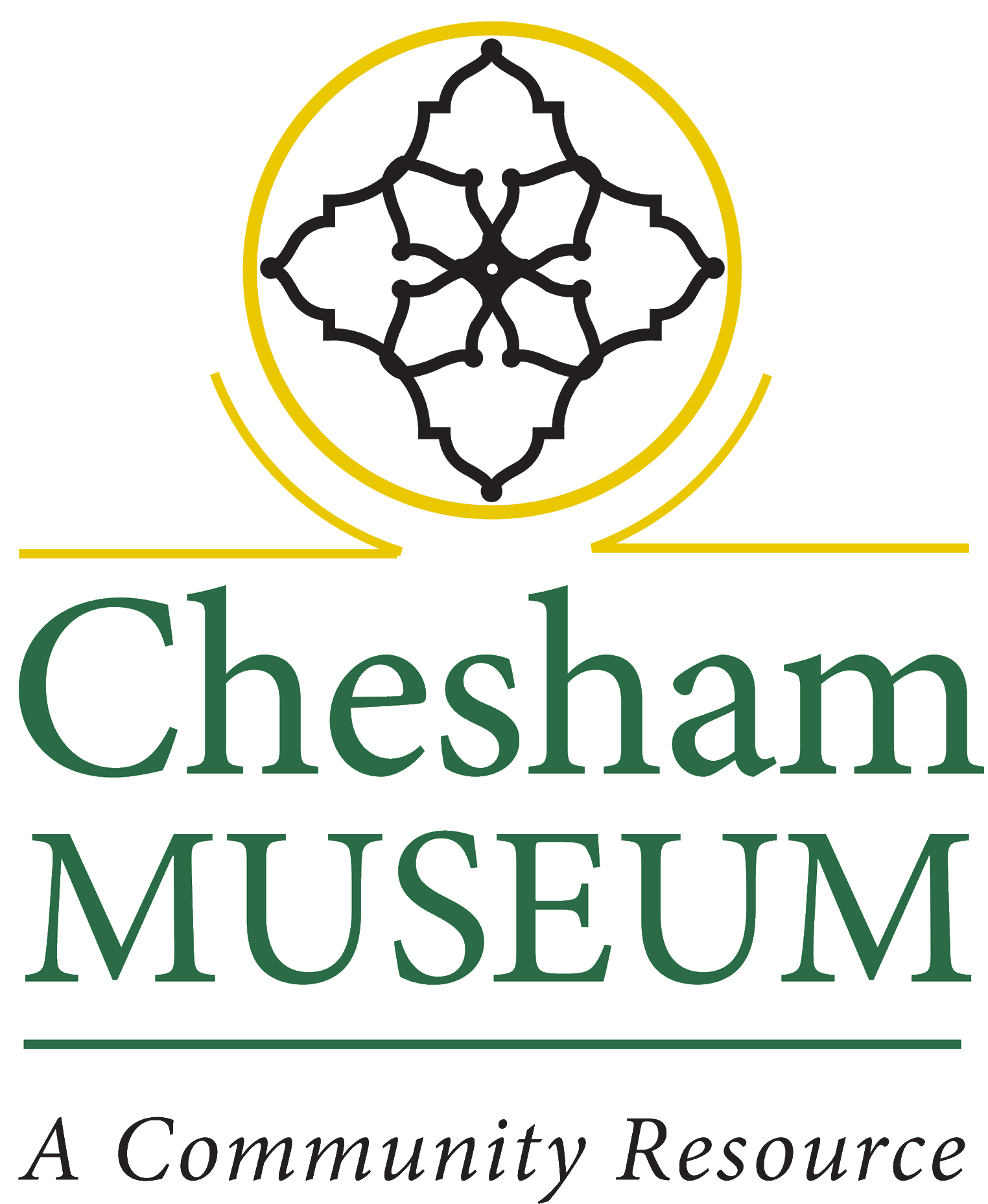Chesham’s Temperance Movement
Chesham had many pubs and its own brewery. As a result there was a major problem with drunkenness. In reaction to this, a Christian temperance movement arose. This is the story…
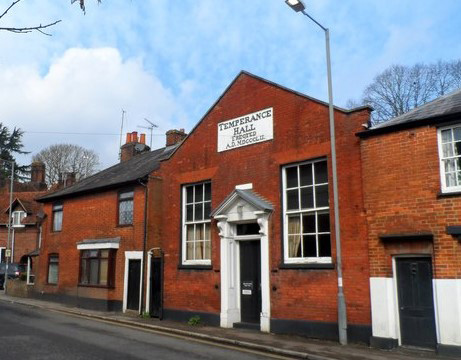
Temperance Society
In 1837, five Chesham men formed a Total Abstinence Society, later renamed the Chesham Temperance Society. The Society met at the British School in Townfield Yard.
In February 1840 William Howard, Chesham’s pawn-broker, invited Rev Dr Jabez Burns to Chesham to lecture on Temperance at the Town Hall. Jabez Burns was a famous Methodist and Baptist preacher in Paddington, and an advocate of temperance.
Many people responded and signed the pledge, including John Plato, known as the “King of the Buckinghamshire Drunkards”. By 1846 the Temperance Society had 400 members.
Temperance hotel
In 1851 a Temperance Hotel was established at 61, Broadway, Chesham, close to the station. It provided accommodation to those coming to Chesham by train. This served tea, coffee and cocoa.
The hotel was also used as the headquarters of the Broadway General Baptist Football Club, which was one of the two Christian football teams to unite to become Chesham United (who are still known as the Generals). In 1891 a new Temperance Hotel was built in Station Road which lasted until 1913.
Temperance Hall
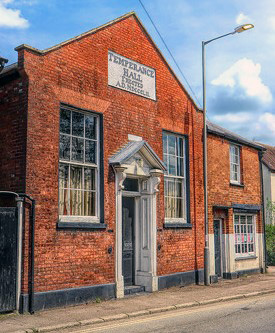
In 1852 Chesham Temperance Society paid £152 for two cottages in Church Street, which they demolished to build their own building called the Temperance Hall.
Dr. Jabez Burns returned to Chesham and laid a memorial stone over the door (which is still there but practically illegible). Above the porch is a white stone which reads “Temperance Hall Erected A.D. MDCCCLII” (i.e. 1852).

The Hall was put in the care of Trustees. The Temperance Hall used as an alcohol-free community centre, with lectures, concerts, and various meetings.
John Plato
From 1840 John Plato became a reformed character, with a renewed Christian faith. He became a successful businessman and broker, and a nationally acclaimed speaker.
The Bucks Herald wrote about him
“Mr. Plato was a very successful temperance reformer, for some years visiting most of the large towns in England in aid of the cause. He used often to speak humorously but affectionately of his wife Lucy, and provoked many a smile, in addressing audiences numbered by thousands, when describing, in his homely and vigorous language, the change in his home life and surroundings which was brought about when he gave up drinking.
“Hundreds have had cause to rejoice that through his instrumentality they were induced to follow his example, and give up that which had before been the bane of their lives. It was also chiefly through his influence that the Chesham Temperance Hall was erected.”
John Plato died in 1869, and there is a monument to him in Chesham cemetery.
Used as a church meeting place
Chesham Temperance Society was supported by all the churches in Chesham, which in the 1800s were the Anglicans, Baptists, Congregationalists, Methodists and Quakers.
In September 1852, the Temperance Hall was registered as a place of religious worship, so that religious services could be held there. The hall was often used by church congregations when their buildings were being repaired or rebuilt.
In the 1860s the Temperance Hall was used by Chesham Primitive Methodist church as their meeting place. By the late 1800s most churches promoted Temperance, and had a Band of Hope which encouraged to sign a pledge to abstain from strong drink, or to go further and put a “T” to denote that they abstain from the total of all alcoholic drinks (hence teetotal).
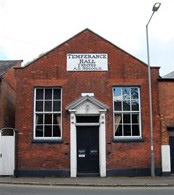
Temperance groups
During its heyday in the 1880s and 1890s, a number of Temperance groups were formed which met at the hall. In 1883 the Chesham Division of the Order of the Sons of Temperance Friendly Society (which despite its name was open to men and women) was started, as part of the London Grand Division. They met alternate Wednesday evenings at 8:30 p.m. in the hall.
Around 1885 Chesham Temperance Choir was formed, which won the Chiltern Hills Temperance Federation Challenge Shield in 1898. From 1885 Blue Ribbon Missions were held in Chesham. Blue ribbons were worn by people who had taken the pledge.
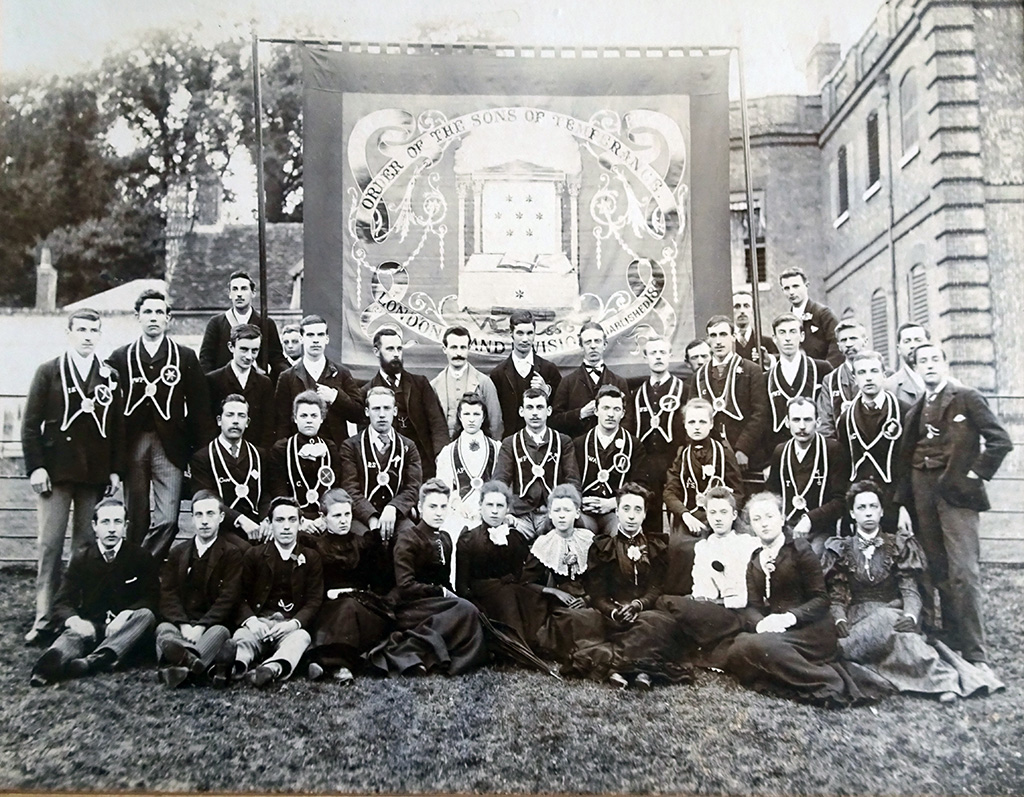
In 1887 the Cadets of Temperance was formed, as the junior wing of the Sons of Temperance. They met alternate Wednesdays at 7:30 pm at the hall.
The Band of Hope met on Thursdays, which used to have talks and lectures. It was part of the Bucks and Berks Band of Hope Union. The Star of Hope met on Fridays at 8:15 pm.
In 1886, the Temperance Hall was extended when the Temperance Society bought the adjoining cottage. In 1891, the Chesham Temperance Athletic Club was formed which used the hall as a gymnasium.
Every August Bank Holiday Monday a grand Temperance Fete was held. A procession would lead from the Temperance Hall with the bands playing through the streets of Chesham with regalia and banners, to a place where they had a sports day and a fete.
End of the Temperance era
The temperance movement received an unexpected boost in 1914, when the Liberal government passed the Defence of the Realm Act which licensed pub hours, and beer was diluted and taxed. However, after the failure of Prohibition in the USA, the worldwide Temperance movement waned.
End of the Temperance Society 1958
By 1958 the Temperance Society was wound up. The Trustees for the hall sold it to Chesham Urban District Council for use by the Old People’s Welfare Committee.
The hall was sold with a restrictive covenant to prevent the sale of intoxicating liquors on the premises. The Trustees used the money from the sale to assist youth work of the Chesham churches, and to help pay to build Hivings Park Free Church, which opened in 1962.
Little Theatre by the Park
In 1983 Chesham Bois Catholic Players took a lease on the Temperance Hall and since then it has been used as a theatre. Since 2003, the Temperance Hall has been known as the Little Theatre by the Park.
This article was first published in the pages of the Bucks Free Press, Amersham and Chesham edition, on April 12, 2020.
